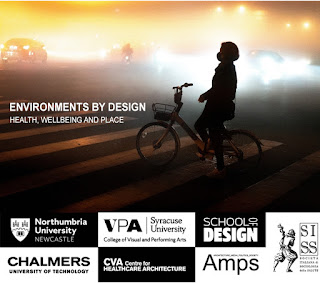Dates: 1-3 December 2021
Location: Online
Location: Online
Website: AMPS SISS
Deadline for submission of abstracts: 25 June 2021 (Round 1)
The Covid-19 pandemic represents a traumatic event which, like other natural or man-made disasters, has forced people to face various stresses: the fear of getting illness, the loss of personal freedom, the death of friends and family, the loss of work, and more. The containment measures imposed by governments across the world have forced citizens to share physical spaces, deal with the associated emotional strain, sacrifice personal time and space in favour of permanent cohabitation and even to stay in buildings that are too small and unsuitable for the lockdown conditions.
While such impositions are serious enough for anyone, they are even more problematic and stressful for people in vulnerable situations in which our living environment can have even more impact on psycho-physical well-being: irregular migrants, low-income workers, residents in small and crowded houses, families in conflict, people with disabilities, elderly people housed in retirement homes, homeless people, and so on.
The SISS strand of this conference aims to collect and discuss quantitative and, above all, qualitative research studies carried out in these areas. The aim is to understand the situations faced by these categories of people in various contexts: what borders, walls and barriers have been strengthened as a result of lockdown and physical distancing due to the Coronavirus? How have public healthcare institutions faced the problems of people in these categories? How has Coronavirus effected the actions of these institutions and what solutions can be found?
Disciplines: Sociology | Environmental Psychology | Public Health | Mental Health | Architecture | Urban Design
Publications: UCL Press | Vernon Press
Organised by the Italian Society for the Sociology of Health (SISS), with Amps and Vernon Press.
Visit the site: https://architecturemps.com/siss/
The Covid-19 pandemic represents a traumatic event which, like other natural or man-made disasters, has forced people to face various stresses: the fear of getting illness, the loss of personal freedom, the death of friends and family, the loss of work, and more. The containment measures imposed by governments across the world have forced citizens to share physical spaces, deal with the associated emotional strain, sacrifice personal time and space in favour of permanent cohabitation and even to stay in buildings that are too small and unsuitable for the lockdown conditions.
While such impositions are serious enough for anyone, they are even more problematic and stressful for people in vulnerable situations in which our living environment can have even more impact on psycho-physical well-being: irregular migrants, low-income workers, residents in small and crowded houses, families in conflict, people with disabilities, elderly people housed in retirement homes, homeless people, and so on.
The SISS strand of this conference aims to collect and discuss quantitative and, above all, qualitative research studies carried out in these areas. The aim is to understand the situations faced by these categories of people in various contexts: what borders, walls and barriers have been strengthened as a result of lockdown and physical distancing due to the Coronavirus? How have public healthcare institutions faced the problems of people in these categories? How has Coronavirus effected the actions of these institutions and what solutions can be found?
Disciplines: Sociology | Environmental Psychology | Public Health | Mental Health | Architecture | Urban Design
Publications: UCL Press | Vernon Press
Organised by the Italian Society for the Sociology of Health (SISS), with Amps and Vernon Press.
Visit the site: https://architecturemps.com/siss/










COMMENTS